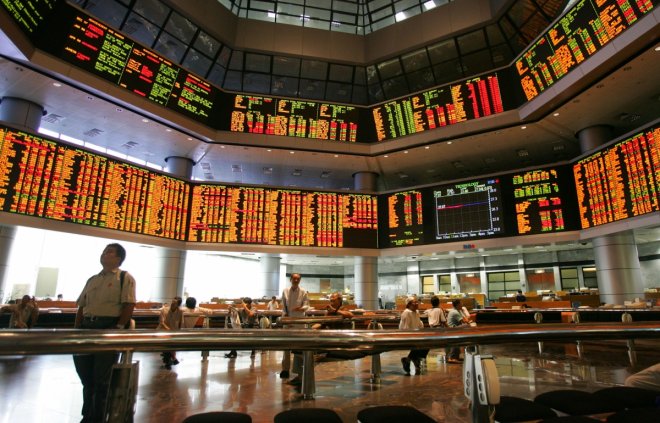
Asian stock markets were mostly down on Monday as Trump's immigration ban led to geopolitical tensions across markets while risk aversion helped yen rally and dollar slide.
US president Donald Trump signed an executive order last Friday, suspending entry of people from seven Muslim-majority countries for 90 days and suspending the refugee program for 120 days.
Nikkei was down 0.56% and bourses of Muslim countries like Malaysia, Indonesia and Bangladesh were also down visibly.
KLCI, the benchmark index for Malaysia, fell 0.35% and Bangladesh's main index DSE down 0.59% while Indonesia's JCI was down 0.1%. Pakistan's KSE100 dropped 0.46%
Middle East's Kuwait Price plunged 1.5% and Oman's main share index dropped 0.21% as at 7:20pm In Singapore.
Markets analysts pointed out that the US situation got developed into a chaotic one as a federal judge in Brooklyn temporarily blocked part of the Trump order.
Several thousands of people protested against the order in US cities also showing the political challenges of the new President, they say.
Adverse local market conditions coupled with weak US dollar led to tight ranges in most Asian currencies.
The USD/JPY pair slipped to 114.26 on Monday from the previous close of 115.06 as the yen usually rises with risk sentiments weaken.
USD/MYR traded in a range of 4.4245-4.4303 on Monday, little changed from its previous close of 4.4300. USD/IDR dropped to 13,328 from Friday's close of 13,357, reflecting the broad dollar weakness.
The Singapore dollar also strengthened riding on the greenback slide as the USD/SGD pair slipped to 1.42297 from 1.43154.
From the US, personal income and spending data will be the main focus of the day. The core PCE is expected to accelerate to 1.7% year-on-year in December, which can strengthen the case for further rate hikes later this year by the Federal Reserve. Pending home sales data will also be noticed from the US on Monday.
Further this week, the main focus is the 2-day FOMC meeting on January 31 and February 1. Any change in the policy rate is not expected widely as a rate hike was just announced in December.
However, markets will try to read more from the central bank's tone on the economic outlook after Donald Trump's inauguration and his signing of a number of executive orders.
The ISM PMI numbers and non-farm payroll report will also be crucial data points from the US this week.
The Bank of England is also due to review the monetary policy this week, with the announcement due on Thursday, and the central bank is expected to let out a cautious tone after the Brexit has been indicated earlier this month by the Prime Minister Theresa May.
The BoE inflation report will be watched for revised growth and inflation forecasts which can impact the pound.








